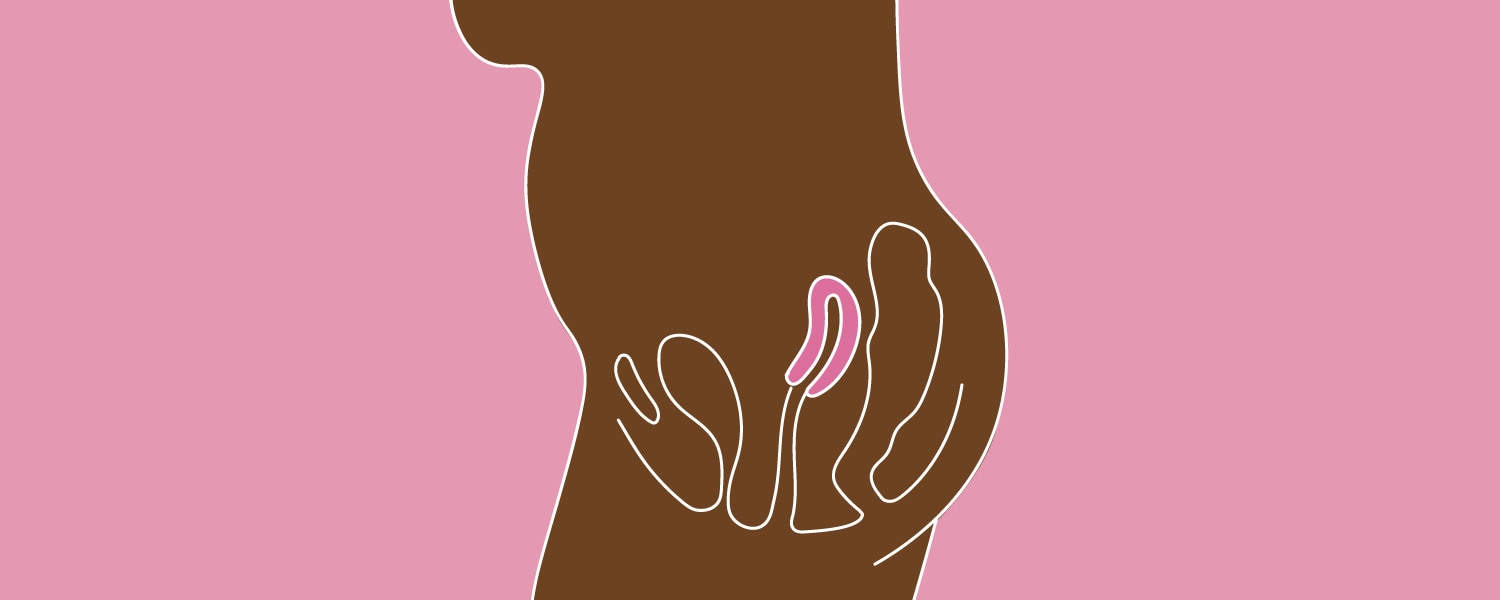What is a retroverted or tilted uterus?

In most female bodies the uterus slants slightly forward, allowing it to fit neatly within the pelvis. But it can also happen that the uterus bends backward, resulting in a retroverted uterus. Let’s take a closer look at all that this means.
Even though having your uterus in a different position may sound strange or uncomfortable, about 1 in 4 women have a retroverted uterus. [1] Surprisingly, not only is it relatively common, but it often doesn’t cause any pain or symptoms or affect your chances of getting pregnant (if you wish to do so!).
A uterus is considered retroverted when it tilts backwards towards the rectum instead of forwards towards the bladder. However, as with most parts of the body, everyone’s uterus is different and unique (including the direction it leans towards!). So even though the typical position for the uterus is for it to be slanting forwards, if you’ve got a retroverted uterus, it doesn’t mean that you’re not normal.
What causes a retroverted uterus?
This condition usually comes down to genetics, meaning it’s something that you are born with. However, it’s also possible to develop a retroverted uterus as a result of:
Adhesions:
Pelvic surgery can cause bands of scar tissue known as adhesions to form, which can pull the uterus into a retroverted position.
Endometriosis:
Endometriosis is a condition where tissue similar to the lining of the womb grows outside of the uterus. This tissue can then “glue” the uterus to other parts of the pelvis and cause it to bend and become retroverted.
Fibroids:
These small, non-cancerous lumps can make the uterus more likely to tip backwards.
Pregnancy:
The uterus is held in place by bands of tissue called ligaments. Pregnancy can overstretch and loosen these ligaments, allowing the uterus to lean backwards. In most cases, the uterus returns to its previous forward position after childbirth, but sometimes it doesn’t.
What are the symptoms of a retroverted uterus?
A retroverted uterus rarely causes any symptoms, so, unsurprisingly, a lot of people may not even know that they have one! [2] Often, they only discover it when they are pregnant and get an ultrasound examination.
However, in some cases, it is possible for a retroverted uterus to cause some noticeable symptoms. It’s important to consider that they are usually linked to disorders such as endometriosis or pelvic inflammatory disease, so watch out for:
- Slight pain during penetrative sex
- Heavy and/or painful periods
- Pressure on the bladder (sometimes leading to incontinence)
- Lower back pain
If you experience any of the above symptoms, it’s a good idea to go and see your doctor so that they can check whether you have a retroverted uterus or another underlying condition. They will be able to provide you with the best advice and treatment course if necessary.
Will a retroverted uterus affect my fertility or chances of pregnancy?
A common misconception and one that may cause you to worry unnecessarily is that a retroverted uterus will make it harder to get pregnant. However, on its own, it won’t decrease your chances of having a baby. You should be able to conceive just as easily as someone with a non-retroverted uterus.
The only occasions in which a retroverted uterus could affect your fertility is if other conditions caused it. For example, endometriosis or other health issues such as fibroids or pelvic inflammatory disease. Thus, if you are thinking of getting pregnant or are having trouble getting pregnant, then it’s a good idea to talk to your doctor about fertility options and tips.
Overall, you may feel stressed or worried if you’re told that you have a retroverted uterus, but it really isn’t anything to worry about! In most cases it won’t prevent you from living your day-to-day life or stop you from getting pregnant. And if you are concerned that another condition is causing you to have a retroverted uterus or if you are experiencing abnormal pain in your pelvic area then it’s always a good idea to get a medical opinion to be on the safe side.
Saba® makes you feel #CómodaContigo.
Medical disclaimer
The medical information in this article is provided as an information resource only, and is not to be used or relied on for any diagnostic or treatment purposes. Please consult your doctor for guidance about a specific medical condition.
[References]
[1] https://www.betterhealth.vic.gov.au/health/ConditionsAndTreatments/retroverted-uterus#symptoms-of-a-retroverted-uterus
[2] https://www.mountsinai.org/health-library/diseases-conditions/retroversion-of-the-uterus